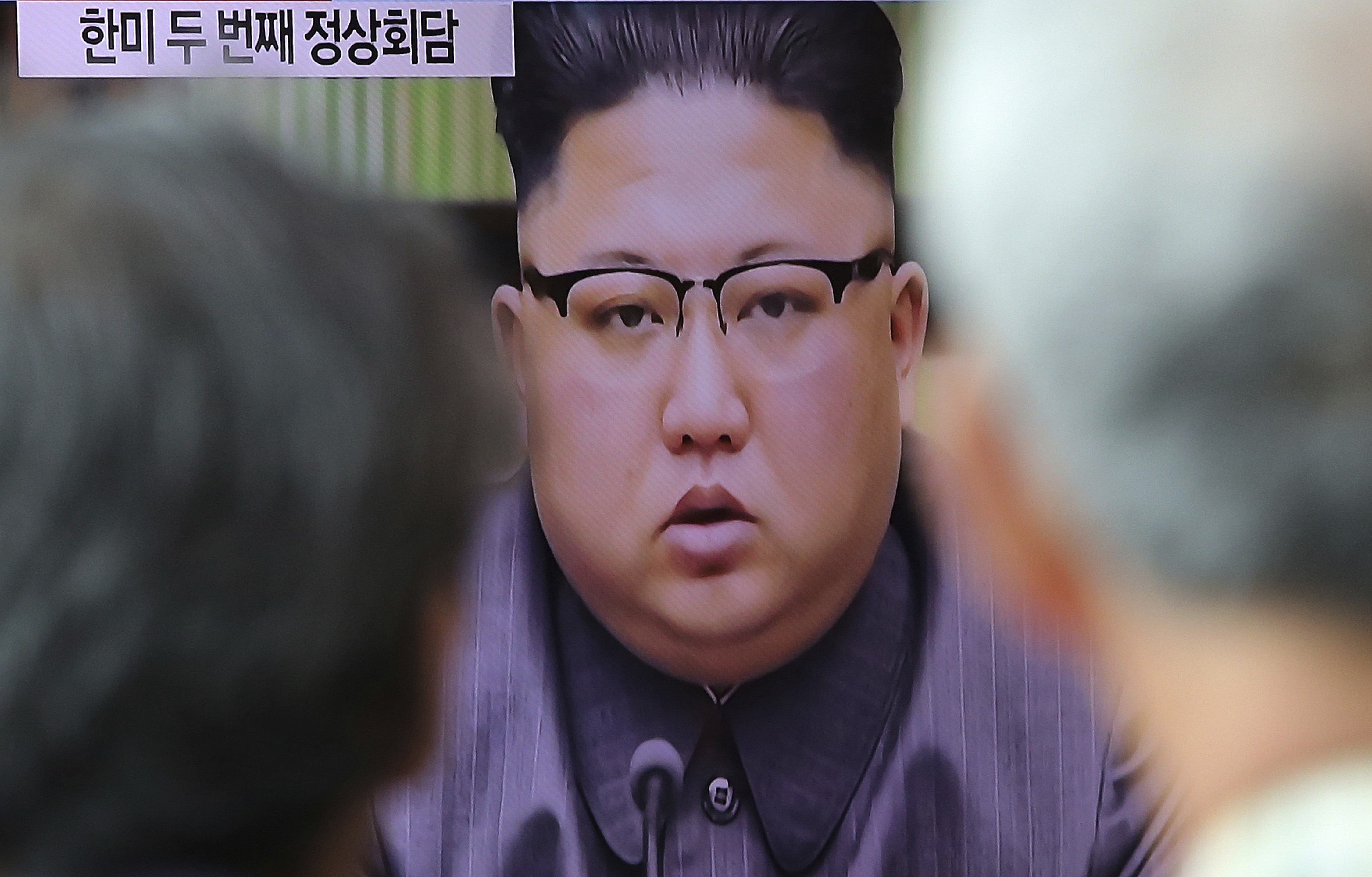President Donald Trump has taken a liking to making big, bold, news-making announcements to show the American people that his administration is hard at work. That’s exactly what he did on Monday, announcing that his administration will re-designate North Korea as a state sponsor of terrorism. To Trump, the decision was a no-brainer. “It should have happened a long time ago,” he said. “The North Korean regime must be lawful. It must end its unlawful nuclear and ballistic missile development, and cease all support for international terrorism — which it is not doing.”
Videos by Rare
Most Americans and indeed most of the world, of course, understand perfectly well how bad North Korea is behaving. All they need to do is turn on the news, and they are likely to find somebody, somewhere, prognosticating about the next missile flight or nuclear test. North Korea is in many ways the very definition of an outlaw state, a country governed by a family-run mafia whose version of legitimate economic activity is exporting North Korean workers for low-skilled, menial jobs, exporting ballistic missile technology and arms to any nation willing to purchase them, and devising increasingly sophisticated ways to subvert restrictions to the international financial system Kim Jong-un cares more about his establishing a nuclear deterrent and expanding the range of his missiles than feeding his people. Pyongyang’s system of concentration camps are so horrific, so grotesque, and so entrenched in how the Kim regime exterminates domestic critics that a U.N. Commission of Inquiry spent over a year cataloging the crimes. “The gravity, scale and nature of these violations reveal a State that does not have any parallel in the contemporary world” the report concluded. And yes, the North Koreans have engaged in international terrorism in the past, such as a 1987 bombing of a Korean Airlines flight that killed 115 people. One could put forth a legitimate claim that the assassination of Kim’s elder half-brother with a chemical weapon in the middle of a busy Malaysian airport is a clear-cut case of terrorism.
Trump’s re-listing of North Korea as a state sponsor, however, won’t have much if any practical impact on the reclusive nation’s finances or its willingness to broker an agreement that leads to a nuclear weapons-free Korean Peninsula. Nor will it smack some sense into Kim Jong-un’s head and lead him to the conclusion that prospects for his country are brighter without nuclear missiles than with them. Like the White House refusal to decertify the Iran nuclear agreement, slapping terrorism sanctions on North Korea and shaming it internationally are more political statements than effective policy. In other words, it’s a way to warn Kim’s regime that it better start acting like a rational, responsible nation.
What the Trump administration and multiple administrations before it refuse to acknowledge, however, is the perverse reality that a nuclear weapons program is an inherently rational act for Kim.
RELATED: “Should have happened a long time ago” — President Trump makes his toughest move yet on North Korea
While it has become a cliche to mention the fates of Saddam Hussein and Muammar al-Qaddafi as overriding factors in Kim’s nuclear decision making, the supposition makes perfect sense. For a man absolutely obsessed with his own power and self-preservation (as his father and grandfather were before him), Kim interpreted Saddam’s capture by U.S. forces and Qaddafi’s killing as apt metaphors for how quickly things can go south when an authoritarian leader voluntarily gives up his nuclear program or neglects to build one. The Kim family looks at the demise and humiliation of these leaders — a dirty and powerless Qaddafi bludgeoned to death after being dragged out of a drainage pipe and a once invincible Saddam taunted as he awaits death at the gallows — and clearly sees a future he wants to avoid at all costs. The surest way to do that in his mind is by improving his nuclear weapons capability and enhancing the technology that will allow his government to reach the U.S. mainland with a missile. As longtime North Korea observer and Cato Institute senior fellow Ted Carpenter wrote this month, “The behavior of Washington and its allies in Libya certainly did not give any incentive to North Korea or other would-be nuclear powers to abandon such ambitions…”
The U.S. foreign policy establishment in both political parties may scoff at this reasoning and argue that what happened to Qaddafi six years ago is not determinative of what will occur to Kim Jong-un today — especially if he cooperates with the international community and agrees to shut down his nuclear program. But that’s precisely what Qaddafi thought when he was negotiating with the George W. Bush administration, and he was dead and buried less than a decade later.
Through the lens of domestic politics, terrorism sanctions on Pyongyang certainly look good. After all, no lawmaker in their right mind would stand on the House or Senate floor or use time during a committee hearing to argue that the United States should stop punishing a regime that imprisons its own people in a life of servitude, assassinates citizens on foreign soil, detonates nuclear devices underground, or launches medium-range ballistic missiles over a neighboring country.
But if the re-designation is meant to add further financial pressure on Kim’s bank account so that he’s compelled to open up a dialogue about a grand denuclearization-for-diplomatic normalization deal, the Trump administration shouldn’t get duped into misplaced expectations. Denuclearization on the Korean Peninsula is no longer a realistic option. It’s highly unlikely at this point that any sanction, let alone one that is symbolic, will dissuade Pyongyang from the its present course.



